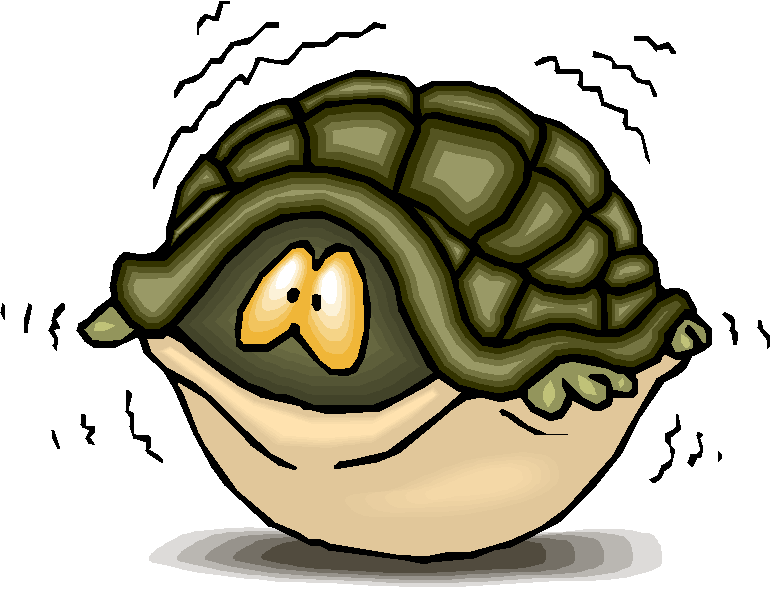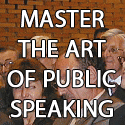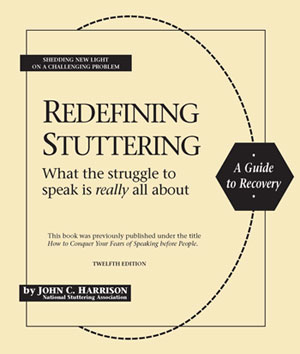In my last post, I spoke about the two main general approaches that make up speech therapy for stuttering/stammering. Those approaches, being the fluency shaping method and the stuttering modification method, also known as “stutter more fluently”. I concluded by mentioning the fact that, irrespective of which form of speaking modification method is used to reduce the physical symptoms of stuttering/stammering, one cannot gain total fluency or anything approaching it, unless one realizes, that the key to real progress, lies in the intervention on the psychological side.
Research into the cause of stuttering, over the last decade or so, has confirmed that there are definite anomalies, within the brain of a person who stutters, that are a major factor in identifying the cause of stuttering, however, it is a little understood fact that we are capable of “rewiring” or “circumventing” those faulty parts of the brain, so that the symptoms of stuttering can be reduced, and quite substantially.
 When I say that the symptoms of stuttering can be reduced, we immediately think of the physical action of stuttering, which includes, speech repetitions, prolongations and cessations of sound or blocks, as well as the secondary behaviour associated with the struggle to get the words out fluently. However, as was the subject of my post on the Stuttering Jack Scale of assessing the severity of stuttering, there are other less obvious symptoms of stuttering that need to be considered when talking about the symptoms and degree of stuttering. I am of course referring to the psychological symptoms which include fear, shame, anger, guilt, confusion and lack of clear thought, anxiety and panic, frustration, embarrassment, isolation and social phobia etc. It is common for a person who stutters to be fearful of the judgement of others towards their dysfluent speech. If the individual perceives the situation in a very negative way, he or she can develop a high level of anxiety about the prospect of stuttering. This can even approach feelings of panic at being “out of control”. As a result, one can become confused about topics which are normally easy for them to talk about. Some people describe this situation as “greying out”, as the mind tends to go blank when trying to verbalise an answer while stuttering. Stuttering and/or the fear of stuttering can lead to a degree of social phobia, and studies have shown that a high percentage of adults who stutter demonstrate the symptoms of social phobia.
When I say that the symptoms of stuttering can be reduced, we immediately think of the physical action of stuttering, which includes, speech repetitions, prolongations and cessations of sound or blocks, as well as the secondary behaviour associated with the struggle to get the words out fluently. However, as was the subject of my post on the Stuttering Jack Scale of assessing the severity of stuttering, there are other less obvious symptoms of stuttering that need to be considered when talking about the symptoms and degree of stuttering. I am of course referring to the psychological symptoms which include fear, shame, anger, guilt, confusion and lack of clear thought, anxiety and panic, frustration, embarrassment, isolation and social phobia etc. It is common for a person who stutters to be fearful of the judgement of others towards their dysfluent speech. If the individual perceives the situation in a very negative way, he or she can develop a high level of anxiety about the prospect of stuttering. This can even approach feelings of panic at being “out of control”. As a result, one can become confused about topics which are normally easy for them to talk about. Some people describe this situation as “greying out”, as the mind tends to go blank when trying to verbalise an answer while stuttering. Stuttering and/or the fear of stuttering can lead to a degree of social phobia, and studies have shown that a high percentage of adults who stutter demonstrate the symptoms of social phobia.
Most people who do not stutter, would have experienced varying degrees of anxiety if and when they have been called on to make a speech in front of an unfamiliar group without being prepared. As thoughts flood the brain about how others will judge them, and what that means to the individual, the mind can go blank, and speech can become dysfluent in the most eloquent of people, especially if confusion and time pressure are added to the equation. Some people who stutter, can also feel emotions that can cause embarrassment, and anger over the situation that they find themselves in. As a result, some individuals can choose to isolate themselves to varying degrees from people who they have trouble speaking to, and avoid situations that they tend to stutter more frequently in, hence, leading to the varying levels of social phobia, referred to above. So there are really, as mentioned, two strains of symptom that make up the disorder, known as stuttering, and these two symptoms can vary from person to person, situation to situation, and also vary in degree from day to day.
While the physical symptom of stuttering is extremely frustrating for the person who stutters, the majority of people who stutter would confess that it is the psychological impact on them that is by far the hardest symptom to live with. Now if that is the bad news, I also want to tell you why it is reason to also be the good news.
Why it is the good news is that while it may often be a long, costly and complex process to directly alter the physical symptoms of stuttering, which as we have said are to do with neurological anomalies in the brain, it is possible for the person who stutters to alter how he or she reacts to the thoughts and feelings that trigger the blocking and stuttering, and even better, the individual is able to change the thoughts about the stuttering experience, and as a result alter the reaction to it to be more resourceful rather than destructive.
Our thoughts about a stimulus or stuttering trigger, be it a person or a situation, are what gives rise to anxiety and once our anxiety reaches a certain level the stuttering will appear. Having said that, anxiety is not a prerequisite for stuttering but it certainly aggravates the problem. What is a prerequisite for stuttering is the programming of our belief system and the programming of the stuttered speech habit that has become hardwired into the brain at an early age.
It is interesting to note that every person who stutters tends to stutter in their own way, and it has even been said that the physical act of blocking is actually an effort to try not to stutter. It is a manifestation of the effort to try to get the word out. It is also interesting to note that the individual’s way of stuttering is never forgotten or removed from the brain, and in cases where an individual has been successfully treated using a fluency shaping method, and does not stutter for many years, if the stuttering returns it does not return in a different way but the exact same way that was peculiar to the individual before being successfully treated, many years before.
As mentioned, the belief system plays a major part in the degree of stuttering that a person will exhibit at any one time. In that regard it can be argued that where a person is fluent in one situation, and not fluent in the next, it is as a result of the actions of the belief system, in that to trigger the stuttering one must first think about stuttering, which then triggers the belief that one will stutter. This then in turn triggers the brain to look for words that it believes will require extra effort to get out. This then triggers what, Bill Parry, calls a “stuttering valsalva manoeuvre”, where the body, through the respiratory system, tries really hard to get the word out and consequently gets caught up in what John Harrison calls a “stuttering approach avoidance conflict”, and the result of all this is a speech block. Now that is all getting a bit complex at this point in time but as you can see, to successfully treat both the physical and psychological symptoms of stuttering, one needs to understand what is going on.
At this point we will leave the complexity of treating the physical symptoms and continue to concentrate on how we can control the anxiety associated with stuttering. In my next blog post I will reveal some little understood secrets of what contributes to our levels of stuttering associated anxiety, and, give you some tips on how to reduce that anxiety. So in that regard I once again invite you to subscribe to my RSS feed or email notification so that you don’t miss the coming blog posts where I will begin to reveal how I have been able to successfully turn a “5,5 stuttering problem”, into “0,0 stuttering freedom and speaking confidence euphoria”.
Comments:








{ 11 comments… read them below or add one }
Interesting read. I like the reference that blocking is actually what happens when trying not to stutter. My stutter is unique and different every day, it seems. I do’t have much speech anxiety, but still get embarassed once in a while, especially when I encounter a negative listener response. My reactions are tied into my covert days, and old habits are hard to break.
I am not trying to fix my stutter. After more than 35 years of hiding it, I have come out. I have been in therapy for almost 3 years now, but I am not going to go any more. I don’t want to be fixed – I want to be me.
Are you a SLP or psychologist? Where do you get your theories from?
I will keep reading – our perspectives are all so different.
Pam’s last blog post..More Sibling Talk
Hi Jack,
I agree with a lot of what you say about the emotional aspects of stuttering and I definitely agree that people who stutter can change their reactions. You also mentioned that research confirms that there are definite anomalies within the brain of a person who stutters that are a major factor, but then when you talk about treatment, you pass right over that and focus only on changing thoughts and reactions. It is equally important to change the neurological processes of speech production. Perhaps you are not aware that there is a therapy approach that targets the neurological processes. It is more understood how to rewire the brain to produce speech naturally than is usually recognized. This is the way I treat stuttering. That’s why I know it can be done. Everyone seems to be locked into fluency shaping and stuttering modification as the only therapies, but this is not so. I see the key to real progress requires changing thoughts and reactions, because this allows the system to function automatically. That is essential for the production of fluent speech.
Pam,
Thanks for your comments. I am neither an SLP or a psychologist. I am just a person who has been obsessed with finding the answer to stuttering for nearly 30 years. There are probably many of us in that category but I have done it all and thought about it more than most. As you say we all have a different perspective and that it what I have been trying to get across in my earlier posts, that none of us experience stuttering the same way.
We each become experts in our own stuttering, right? Will you be coming tot he NSA Conference in Scottsdale this year? Would love to meet you and chat in person. Keep up the good work!
Pam
Actually I met you briefly in Parsippany after your wonderful talk. I don't know yet about Scottsdale. I'd love to come but am not sure it can work so I haven't put in a proposal, but if I can come I'll surely be there.
Actually I met you briefly in Parsippany after your wonderful talk. I don't know yet about Scottsdale. I'd love to come but am not sure it can work so I haven't put in a proposal, but if I can come I'll surely be there.
If I ever have trouble beginning a word I use a physical presence such as a finger tap on my knee or a table. I tell my brain when my finger hits the surface I will say the word. Works 80% of the time. I also start sentences off with an “s” word such as the word “so”. Grammatically it might not be right but it gets me through some tough times. Good luck to you all. You have friends out there everywhere. Peace.
Speech problems like stuttering or stammering are among the several conditions that are very rampant nowadays. What is even more unfortunate than this is that people who suffer from such conditions are sometimes not openly accepted into the society which leads to isolation. There is really a great social stigma attached to these problems and it is very heart breaking. May this post remind us that people who suffer from speech problems are also human beings who have feelings. They need our understanding and support!
this is very informative!
I am a speech and language therapist. currently working witn 4 adult patients and is very interested starting a support group. can u help in some way ?
Thanks for sharing the valuable information.
Stuttering speech therapy specialist in charleston sc